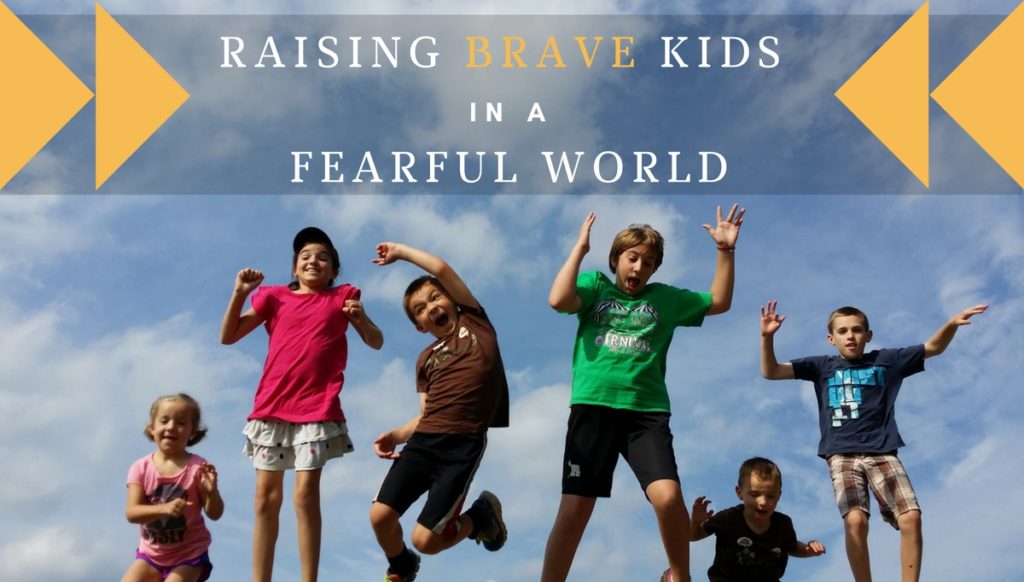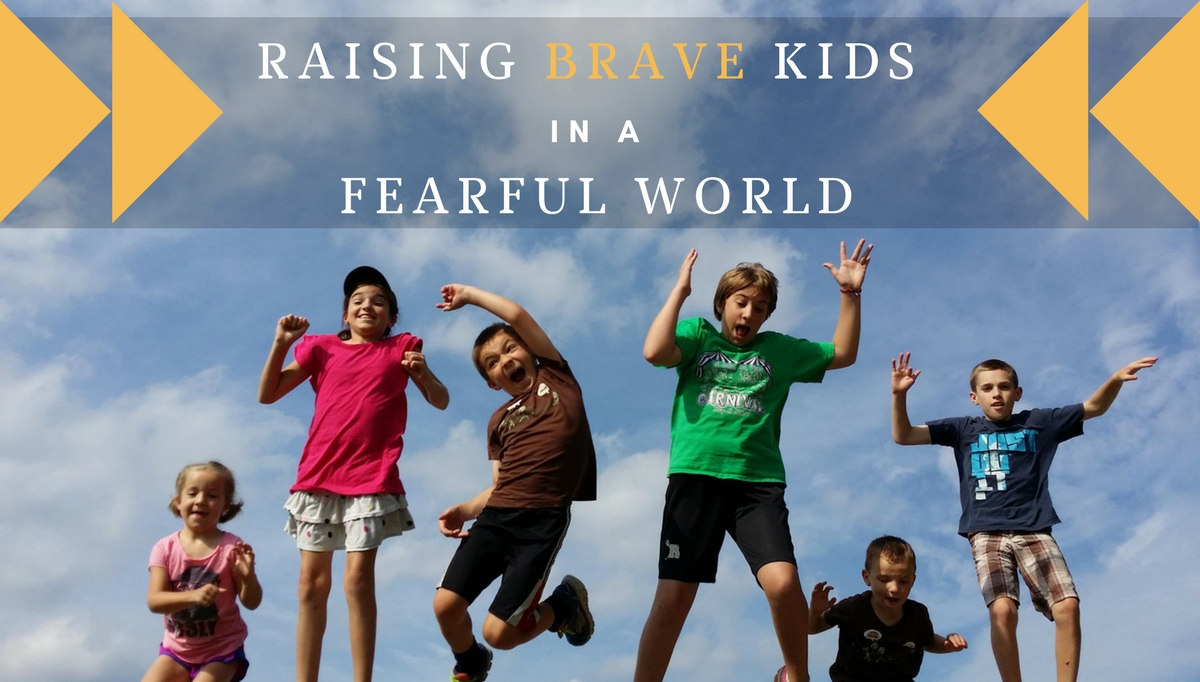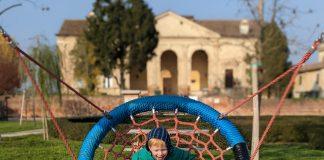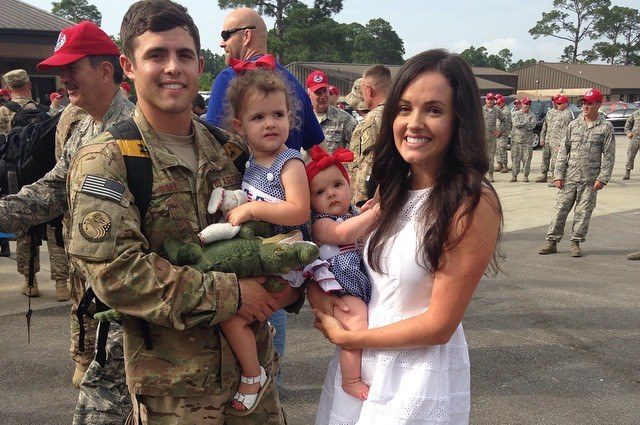
I once thrived on current events and the daily buzz of world news that streamed to my phone and television.
Now, it seems that I wait with bated breath for the next news update that will take my breath away.
Like many fellow parents, I’m concerned about how my child will eventually process these instances. I want my daughter to grow up confident, sensible, and brave, but these traits must be demonstrated, not simply hoped and wished for.
As parents, it’s important to recognize our children’s anxieties, while also teaching them to process their apprehensions so that these fears don’t manifest later in adulthood. Dr. Catherine Hubbard, a Clinical Psychologist who treats children and adults in Virginia Beach, says that parents must set a healthy tone for their children when talking about fear.
“As parents,” she said, “it is important that we do not put our anxiety, especially that the world is a scary place, onto our kids. If you’re teaching your children that the world is not a safe place, you’re increasing the chances that your children will be anxious, depressed, mistrustful, and isolative.”
So where do parents begin making changes to model positive and proactive behaviors for their children? Parents can begin with the basics.
Here are 5 things you can stop doing now and start doing instead:
Stop Encouraging Your Child to be Afraid
Speaking constantly of negatives, telling your child repeatedly that certain events or people are scary, and using fear-based strategies such as telling your child bad things will happen as a result of his or her behavior, only fosters anxiety and puts a serious strain on a child’s young mind.
Children do not need to see the world as an unsafe place in order for parents to teach them how to stay safe.
Instead, use positive reinforcement for behaviors that you want to encourage your child to repeat, and speak openly with your child about concerns he or she may have. Dr. Hubbard explains that it’s as simple as putting that worry into words, “Listen fully to what fears your child has and allow the child to tell you everything he or she needs to get out. Ask open ended questions to figure out exactly what it is that your child is afraid of and identify the core issue,” said Hubbard.
In addition, Dr. Hubbard recommends teaching children age appropriate coping skills such as deep breathing or repeating fear reducing statements, as well as helping children develop effective communication skills to explain exactly what causes them anxiety.
Stop Ignoring Your Instincts
If something feels wrong, trust your instinct and take appropriate action. If you feel that your safety is threatened or something just isn’t right, then leave. There will always be another concert, another grocery store or another gas station. If something appears odd, behaviors seem unusual or you notice events unfolding that make you uneasy, follow your instincts. Humans have the ability to sense danger, and sometimes that manifests itself as that “gut feeling.”
Children can have amazing intuition about people around them, and parents should talk to them about their gut feelings, too. Children should know that it’s OK to trust their gut if they get an uncomfortable or unsafe feeling about someone. Parents can also encourage their children to take an active role in making decisions that will help keep them safe. Examples include telling children they shouldn’t walk away with anyone else when they are with you, and they should let you know if they see something weird or concerning when they are in public. Children pick up on so much more than they are often given credit for, and parents can do a lot to nurture those abilities.
Stop Being Distracted
Personal electronics are effective diversions for kids when you need a moment to handle a task or errand, but cell phones, tablets and other devices are just that: distractions. Whether you’re at a store, library, mall, or busy airport, keep your head on a swivel, your devices put away and practice your situational awareness (being mindful of the events happening in your vicinity). Staying alert will allow you to perceive changes in people and events that may pose a threat to your immediate safety.
With children, Dr. Hubbard says playing a game like “I-Spy” while out and about is good for promoting memory and cognitive development, as it requires children to focus their attention. Still, it is the job of parents to understand situational awareness, be alert to real danger, and help their children in dangerous situations.
“From a developmental perspective, children need to be encouraged to explore and feel safe in the world. But, it is also important to teach your children safety awareness, such as teaching them to hold a parent’s hand when crossing the street, not to talk to strangers unless mommy and daddy are around, and staying with mom and dad in the store,” said Hubbard. “Parents can teach children to be safe through simple behavioral statements followed by immediate positive reinforcement or consequence and do not use fear, threats, or scare-based tactics to gain your children’s attention.”
Stop Making Yourself an Easy Target
Take your safety and the safety of your family seriously and be your own best advocate. Come up with an emergency exit plan when out at crowded events and communicate that plan to your family in a way that is both calm and empowering. Familiarize yourself with the exits, and choose a meeting point in case you and your children are separated. Ensure your children know the full names of their parents and cell phone numbers (if they are old enough to memorize). Children should also know how to call 911, identify themselves, identify their location, and get to a predetermined safe location.
Keep in mind that children are watching your every move and looking for signs of worry when events seem to be out of control. In most cases there is no big cause for concern, but children are processing everything they see and parents should do their best to keep their cool in stressful situations. Reassure children that emergency plans are just smart decisions to keep everyone together. Console your children and remind them that they are safe with you. Explain that they have an important role by knowing their information, but that you will be keeping them safe as well.
Stop the Constant Stream of TV News
If you are someone who is drawn to the television as background noise, be aware that even though you may tune out the flurry of updates, your child is very attune to much of what is being broadcast into your home.
Dr. Hubbard cautions parents to be mindful of certain content their children take in, “I think it’s important to note that whenever possible, to limit exposure to scary world events and make sure any exposure is age appropriate,” she said. “For example, the news is generally not helpful for children to watch as it tends to create the cognitive frame that the world is scary or unsafe and can make one think that negative events (e.g., crime and natural disasters) are more likely to occur and occur more frequently than they actually do.”
When world events are too heavy for the little ones in your home, turn off the television, head outside, break out some books, play a game, or head to the store for a mental break from the news.
Our world is most certainly uncertain, and though I will protect my daughter with all available resources, the day will come (all too soon) when I cannot be her only protection. By learning new skills and gaining valuable knowledge, my daughter and children like her will be better equipped to manage the fears they face and have strategies to boost their resiliency as they grow up in an increasingly unpredictable world.












Nice job and some very helpful tips to raise healthy, independent kids. Give them roots to grow and wings to fly!! Not always an easy job for parents or for kids!
You wrote from the perspective of a mom keeping her child safe, yet as a single woman with no children, I found your advice easily applicable and true to me! I particularly appreciated your thoughts on situational awareness. Considering the violent tragedies that have befallen the United States as of late, these are strategies all should practice.
Comments are closed.